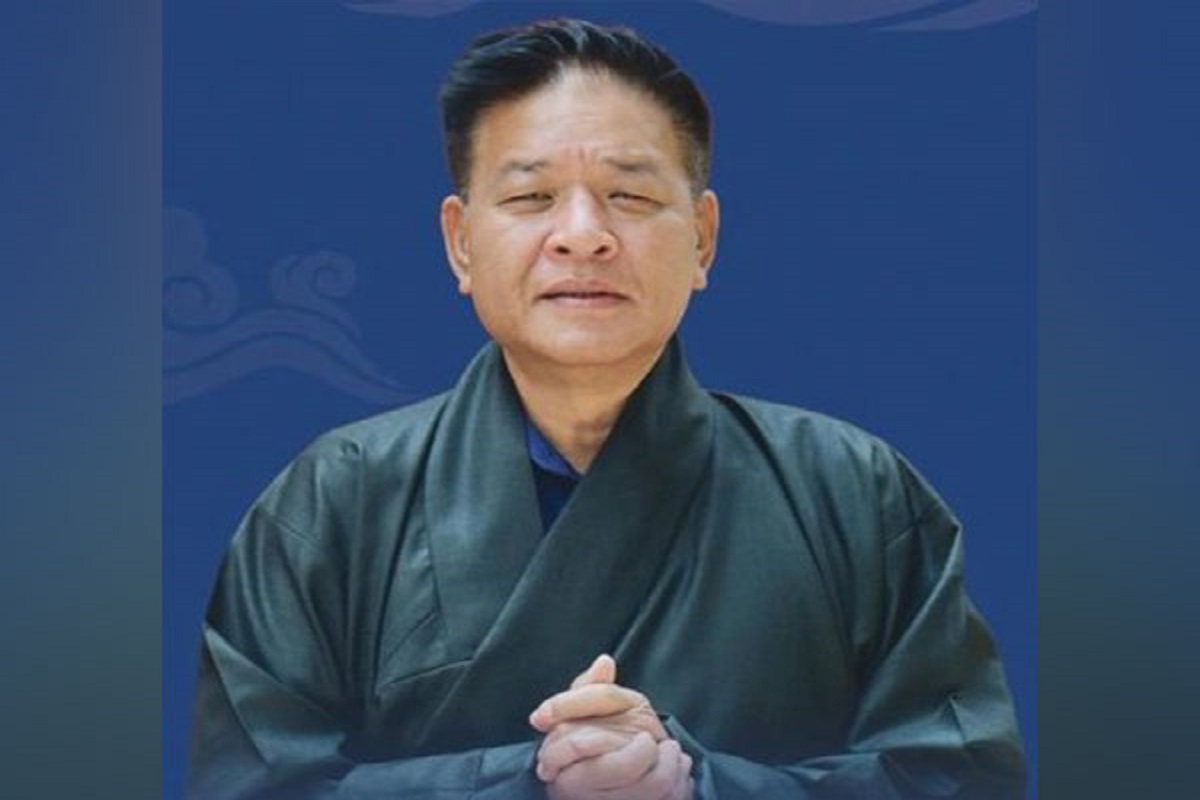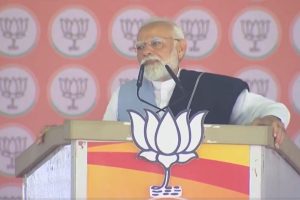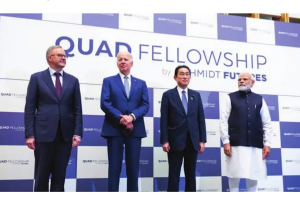Tibet’s exiled political leader Penpa Tsering said that it is unfair for Australia to punish nations such as Iran and Russia for human rights abuses while letting China off the hook because it is Australia’s biggest trading partner, the Sydney Morning Herald reported.
In his first trip to Australia since being elected the head of Tibet’s government-in-exile in 2021, Penpa Tsering urged Australian Prime Minister Anthony Albanese to raise human rights with Chinese President Xi Jinping if he travels to Beijing later this year and to impose sanctions on Chinese officials for the mistreatment of ethnic minorities in Tibet and Xinjiang. Tsering accused Chinese President Xi Jinping of seeking to eradicate ethnic and religious minorities in his nation, comparing the forced separation of Tibetan children from their families to Australia’s treatment of Indigenous children during the stolen generations era, as per the Sydney Morning Herald.
Later on Wednesday, Tsering will address the National Press Club in Canberra, refusing the efforts made by Chinese officials in Australia to cancel the event on the ground that it would undermine China’s ‘core interests.
Tsering said, “I always thank the Chinese government for being our best publicity agent. Even if we hired somebody, even if we had the money to hire somebody, they would not be able to do the kind of job that the Chinese government is doing for us.”
He asked Australia to use a consistent standard when it comes to punishing foreign governments for human rights abuses.
In the past year, the Albanese government has imposed Magnitsky sanctions on Russian officials, Iran and Myanmar, but has resisted calls from human rights groups to do the same for China. “When it comes to China, there are no sanctions, but when it comes to other countries where you feel you can handle it then you impose sanctions. That is not fair. If there is a policy of the government it should be applied to all countries in the same manner,” Tsering said, according to the Sydney Morning Herald.
Tsering called for Albanese to be forthright about human rights violations if he accepts an invitation to visit Beijing later this year.
Tsering called for Albanese to be direct about human rights violations if he accepts an invitation to visit Beijing later this year. “Australia is a middle power that is known for its strength to influence policies; it can deal with the bigger powers, it can deal with the smaller powers,” he said.
“We’re not saying don’t engage with China. You have to engage but do it in a strategic way,” he added.
Tsering further said that China was responsible for “crimes against humanity” in Tibet and Xinjiang provinces, where Buddhism and Islam are the predominant religions, as per The Sydney Morning Herald.
In February, three UN experts warned in February that around 1 million Tibetan children have been separated from their families and placed into Chinese state-run boarding schools as part of efforts to absorb them into the dominant Han Chinese culture. “In Australia, you had the stolen generations from 1910 to 1970, and China has adopted a similar policy in Tibet. All these issues added together are contributing to the slow termination or annihilation of the Tibetan culture, religion and Tibetan language.”
Tsering said the Chinese government made a false claim that Tibet’s government-in-exile wishes to create a separate nation when it was only arguing for greater autonomy within the Chinese state. “Some countries think that if you support Tibet then you are against China which is not the case because we are not asking for independence,” he said.
Tsering did not secure a meeting with Foreign Minister Penny Wong. A spokesperson for Wong said the foreign minister “has raised Australia’s concerns about the erosion of rights and freedoms in Tibet in every meeting with her Chinese counterpart and will continue to do so. Australia uses every strategy at its disposal towards upholding human rights, consistent with our values and with our interests,” as per The Sydney Morning Herald.
In a letter to National Press Club chief executive Maurice Reilly earlier this month, the Chinese embassy said “It is a fact acknowledged by unbiased people that the human rights situation in Xizang [Tibet] is at its best in history”.
Tsering responded and asked the Chinese government to remove restrictions on foreign journalists visiting Tibet. “If Tibet is a socialist paradise then why don’t you allow other people to see the paradise for themselves?” he asked.
A spokesman for the Chinese embassy did not respond to requests for comment.











